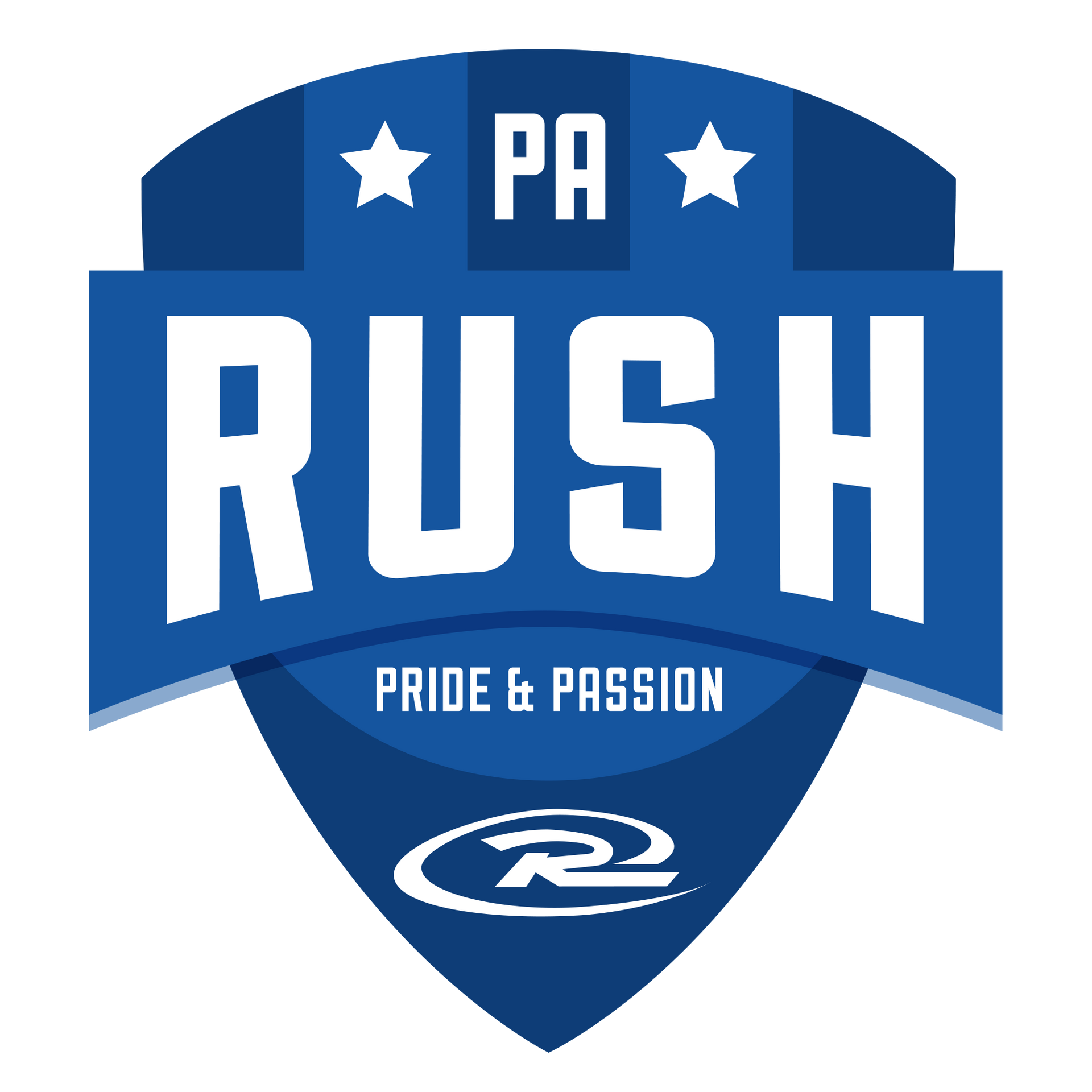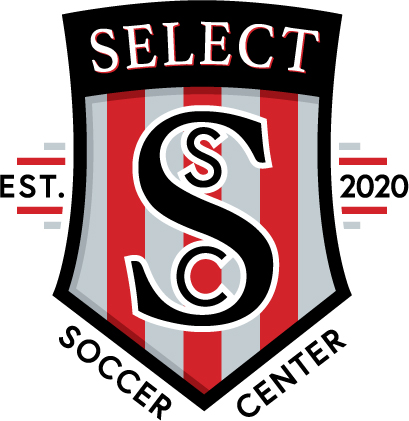Mentor Program
Introduction to the Mentor Program
The Mentor Program is the key to a successful program. The Mentor Coordinator will have all the tools he/she needs with this program to design their program that meets the needs of their League/Club. Some aspects of the program are the minimum standard and some are recommended as best practices.
The tasks are to help guide and mentor the younger players in the local community. There may be some constructive criticism of your performance. Without constructive and positive feedback, you will not know the areas they need to improve to be better mentor.
In order to have a successful Mentoring Program, training the mentors is highly recommended. The President of PA Rush has reviewed and approved this program. The Mentor program has put together training materials for you to train Mentors what to look for in providing feedback to both adult and youth mentors. This program is a volunteer for your league/club. In order to provide a structure within the Club, it is necessary to provide a uniform format so that we have consistent training throughout the Club.
Being a Mentor requires good communication skills, strength, trust, soccer knowledge and organizational skills. A feedback form will be used. What your League/Club decides on is up to the Club President and Mentor Coordinator.
The Club is looking for young adults (12 years old and up) to help in many areas of the league/club. If this is something you are interested in please stay to continue the training. If the mentor is under 18 years of age, a parents approval and signature is required.
The Mentor Coordinator will provide the Board with the following reports: Monthly report of all mentors and times donated, list of needs from coaches at PA Rush, Rewards may be given to Mentors, Certificates given, recommendation written, hour chart for service, etc.
For questions about our Mentoring Program please contact Paul Malcolm.
The Mentoring Training Program
Definition of a Mentor:
1. A wise and trusted counselor or teacher.
2. An influential senior sponsor or supporter.
Goals
It is the goal of the mentor to identify the strengths and weaknesses of a team and thus to reinforce the strengths and improve the weaknesses. This is to be accomplished by using positive verbal, visual and written feedback to the new appointed coach and players.The mentor provides support, encouragement and camaraderie.
A mentor must commit to working with all players and/or activity. Actively working practices and others listed items that may be requested of the Club.
It is also expected that the mentor will be cognizant of abuse by coaches and or parents and will work to protect the player and teach them how to deal with the situation if needed.
A mentor should dress to be readily identifiable as a leader/assistant when acting as a mentor/observer from the touchline. Set the example for the player/coach by wearing the Club Uniform only when working a specific coaching time and then wearing appropriate dress at all other times.
If the mentor is helping with soccer team, they must stay with the same gender for any training. All other services can be intermixed with gender.
Priorities for the Mentor Coordinator
Each new mentor should be assigned a task/team. For his/her first two practices a Club representative (or volunteer parent) will attend. This is very important and considered a critical period for the new mentor. It is important they receive positive feedback from someone who is neutral.
It is recommended that at in-service clinics, all mentors attend the clinic and work with new programs during the field-training portion of the clinic. This allows the new mentors to receive immediate feedback on mechanics, signals, etc., and will acquaint the new referee with the mentoring program.
The Mentor Coordinator may want to work directly with the Club President/Board Member. In some areas, new mentors are assigned to a team, a task, or program. This provides a good opportunity for the new mentor to be assigned to an older age group where he/she can observe an experienced mentor and observe mechanics of the training. This assigning method may be considered in the league’s mentoring program.
Mentor Training Course
Purpose: To give potential mentors a basic understanding of the mentoring process and demonstrate basic mentoring techniques and requirements in order to participate the Clubs mentoring program.
Design: One-hour session to go over the program.
HOUR ONE
Introduction: Why a mentoring program? What is the purpose of a mentor?
Assessment Criteria (Give Back, Communication, Knowledge, Skill and Honesty)
Primary consideration - Do decisions/mechanics add to or detract from control?
Game Observations: What to look for in a new mentor?
Writing up a mentor’s report
Why it is important
Provide copies to Club President and the Board
PA Rush Soccer Needs
Help the volunteer Head coach with players and how to get the players working the soccer game
Help with training for 2 weeks prior to 2 times a week for 1 ½ hrs. (need to confirm)
Help on the first game or two to ensure that players are okay, as well as coach
Basic training skills and positions
Help with U7 and up
Committed mentors/helpers
All games are on Saturday’s (this does not interfere with PAGS/DELCO games)
Will start and end with team per season
PA Rush Soccer Club Needs
Help with the R.E.A.C.H. goods and ship out, track, weigh, clean and organize
2 Older players helping with Younger club/intramural teams
Help with Indoor and Outdoor Camps
Player Placements, Yearly - May
Soccer Fest - May/June
Intramural placing of uniforms and team bag set-up
Clean and Organize the Shed at Complex
Refereeing, getting some older Players and coming back to ref the Club teams
Club Soccer Olympics
Seasonal Field Set up
Priorities for the Mentor
Communication with coach and players
Positioning of Player
Foul recognition and what this means
Game play and game management
Mechanics of the practice
Teamwork
Tools
Assistant Coach and Mentor Forms
Visual assessment and Check list
Reflections and/or Feedback Form
Participation in clinics/additional help
Mechanisms to Assign Mentors
There are at least two ways that mentors can be assigned. The mentor can be individually assigned or assigned with a two person team to a team over a period of 6 weeks, 1 time a week for those six weeks for 1 and ½ hours. The Mentor Coordinator decides which method works best and this is determined how the league has their games scheduled.
Individual or Group Mentor
As each mentor with at least one to two years of experience as a soccer player. In addition to the assignment of a mentor, information and checklists on what is expected of the new referee during the first season should be provided. The mentor may be assigned more than one referee to mentor during the season.
The mentor pair is then expected to communicate with each other about the team they will be helping. The Mentor Coordinator will call the mentors, give background, scheduling tips, and try to plan the event/help so they can work together to help coach of newly formed team. This relationship should exist over the course of the first season.
Feedback from the mentor should be passed on to the referee coordinator so they can keep track of the new referee’s progress. Coordinators could respond with additional thoughts to be passed on to referees and assign further matches based upon progress.
Assigned Tasks
The coordinator will pick a team, task or event that is requested by Lenape Valley/PA Rush. The mentor will be given the option the help or pass. They may be given at least one week to communicate that they would like to continue to help with task. From time to time you may be asked on a spur of the moment. You can say no and we will offer the task to another member. The Mentor Coordinator might assign mentor(s) to a two to three hour blocks of time at the event to total provide support throughout the task/day.
All oral feedback given should be followed up by a written report and provided to the mentor either at the time of observation or within two weeks of the task/observation.
With an online assigning system and email communication, it is relatively easy to set up a system for assigning by the Mentor Coordinator. The assigning of mentors could possibly be included in the online referee assigning tool.
Please note that all member of the Mentoring program are volunteers, we too may not be perfect and get all times and e mails correct. So please be patient. Also please keep you on chart at home to how many service hours you have completed. There is being a sample form attached in this packet.
Meetings
We all know that meetings are disliked by many, not well attended, and never at a convenient time.
And, this is in our work environment. We all know that soccer is not our work environment and that we are all volunteers. This makes it more challenging.
However, organized meetings can accomplish bring individuals with a common goal together, sharing best practices, improving communication, contributing to sharing of the work load, and supporting everyone and improving the program.
For a successful program, meetings are a necessity. Bringing those that mentor others together to share their experiences will only improve the program.
It is highly recommended that two meetings be held each year (September). One meeting should be held before the season to outline the goals of the Mentor Program for the upcoming season.
The second meeting (June) should be held after the season to determine what worked in the program and what needs to be improved. This is important so that we learn from our mistakes.
Of course, additional meetings are the decision of the Mentor Coordinator. This will be dependent on the size of the program and how each individual League Mentor Coordinator administers the program.
Rewards
Mentor Coordinators may want the option of providing incentives for their mentors. This can be in the form of:
Thank you letter at end of season from the Club President and/or Board Members. (will include the events and times)
Board recognition – invite to receive certificate of appreciation at board meeting(s).
Uniform/equipment (consider a certain number of events mentored may be given one jersey, flags, referee bag, etc.)
Will receive a spread sheet as to the events/hours that Mentor has helped in.
Yearly Board Party where you may be recognized as Mentor of the Year.
Mentor of the Year award (nominated by mentors)
Scholarship monies (Still looking into this one)
Written recommendation for the mentor for whatever may be needed.
Certificates: Bronze – 20-30 hours of service
Certificates: Silver – 30-40 hours of service
Certificates: Gold – 40-50 hours of service
Patch for service Hours
Coin for Service Hours
Most of the above referenced items are GREAT for entering a collage, National Honor Society, and Community service for Religious events.
If we get financial help for the scholarship programs, Mentoring Coordinator will send the Thank-You to all participants.
These are a few ideas that each league may consider. If you have any others please inform the Mentor Coordinator
Various Mentor Forms
There are several forms available to the Mentor. The Mentor Coordinator will decide on what form to use. It is possible to have several forms depending on the referee being mentored.
Mentor Program Evaluation Form is the preferred form to use.
The most important aspect of the form is to provide a copy to the Mentor and a copy to Mentor Coordinator. The copy to the Mentor does not have to be given on the field. It may be best for the Mentor to provide feedback after the event from his/her notes and then go home and write it when some time has elapsed to properly formulate what he/she saw on the field and to put it in writing. It is important to provide this written feedback to the Mentor soon after the event, within two weeks of event. Follow-up discussion via telephone may be done, if requested.
Mentor evaluations forms will be provided by the Mentor Coordinator,
Kristian Bates.






